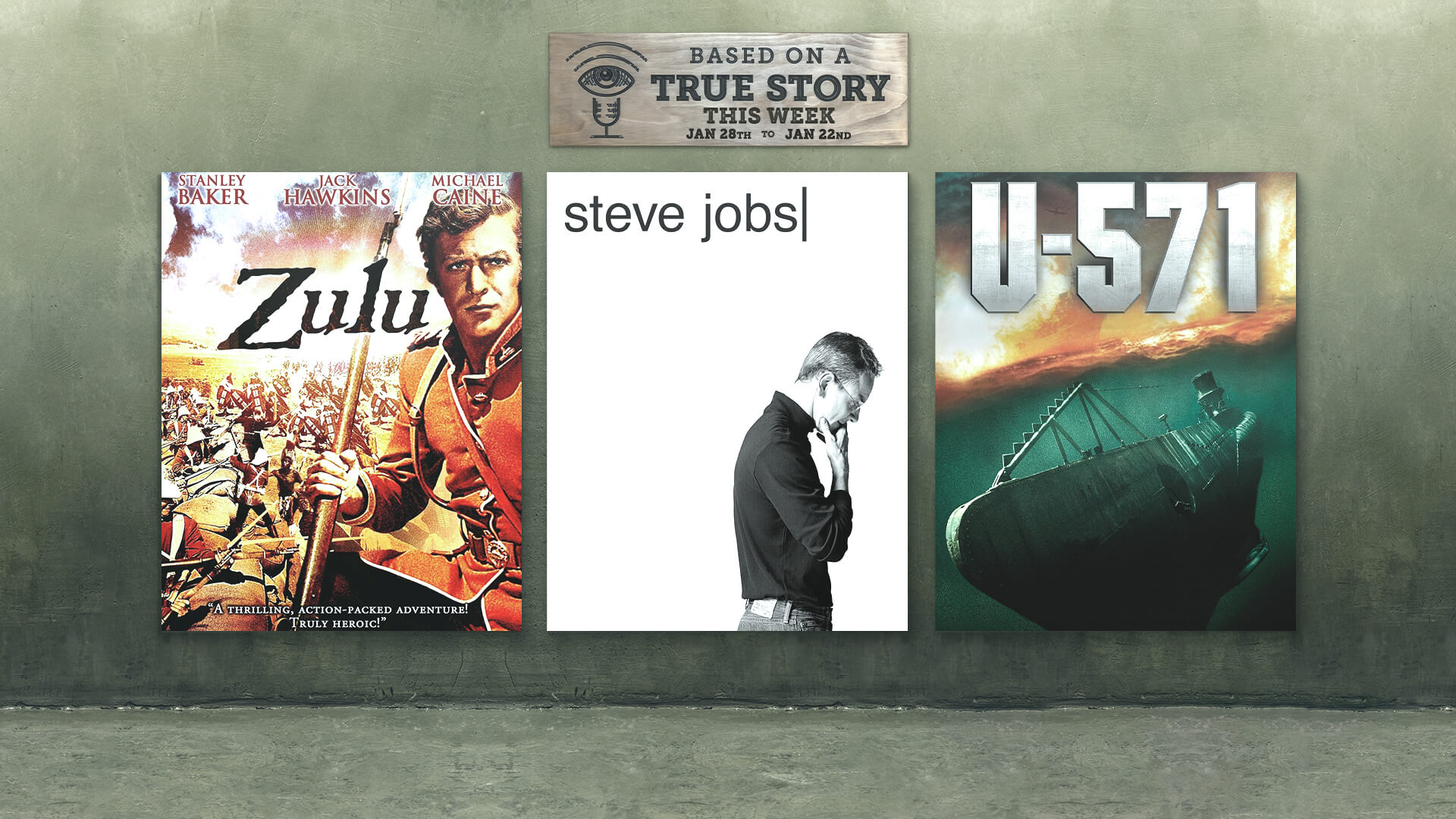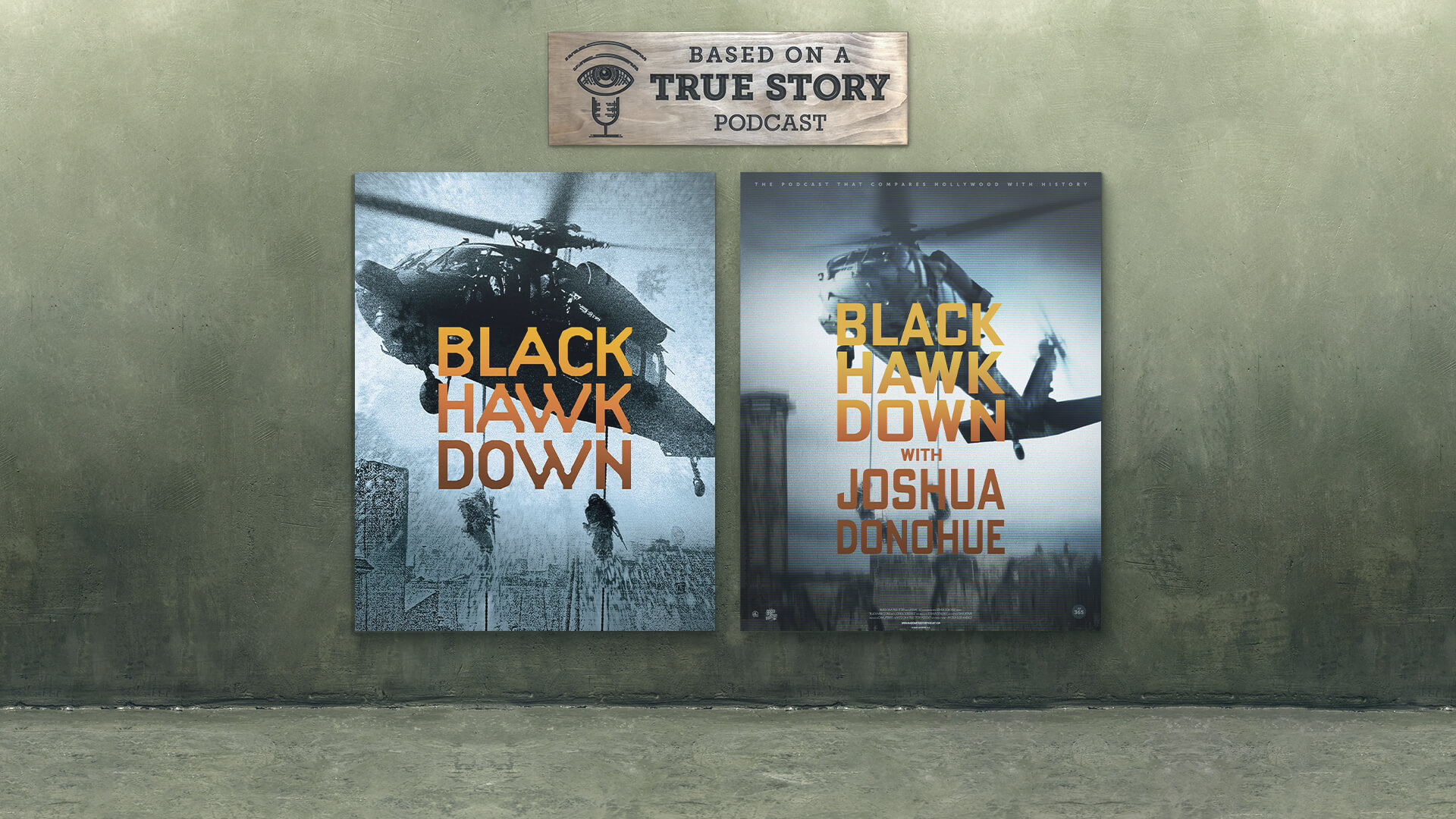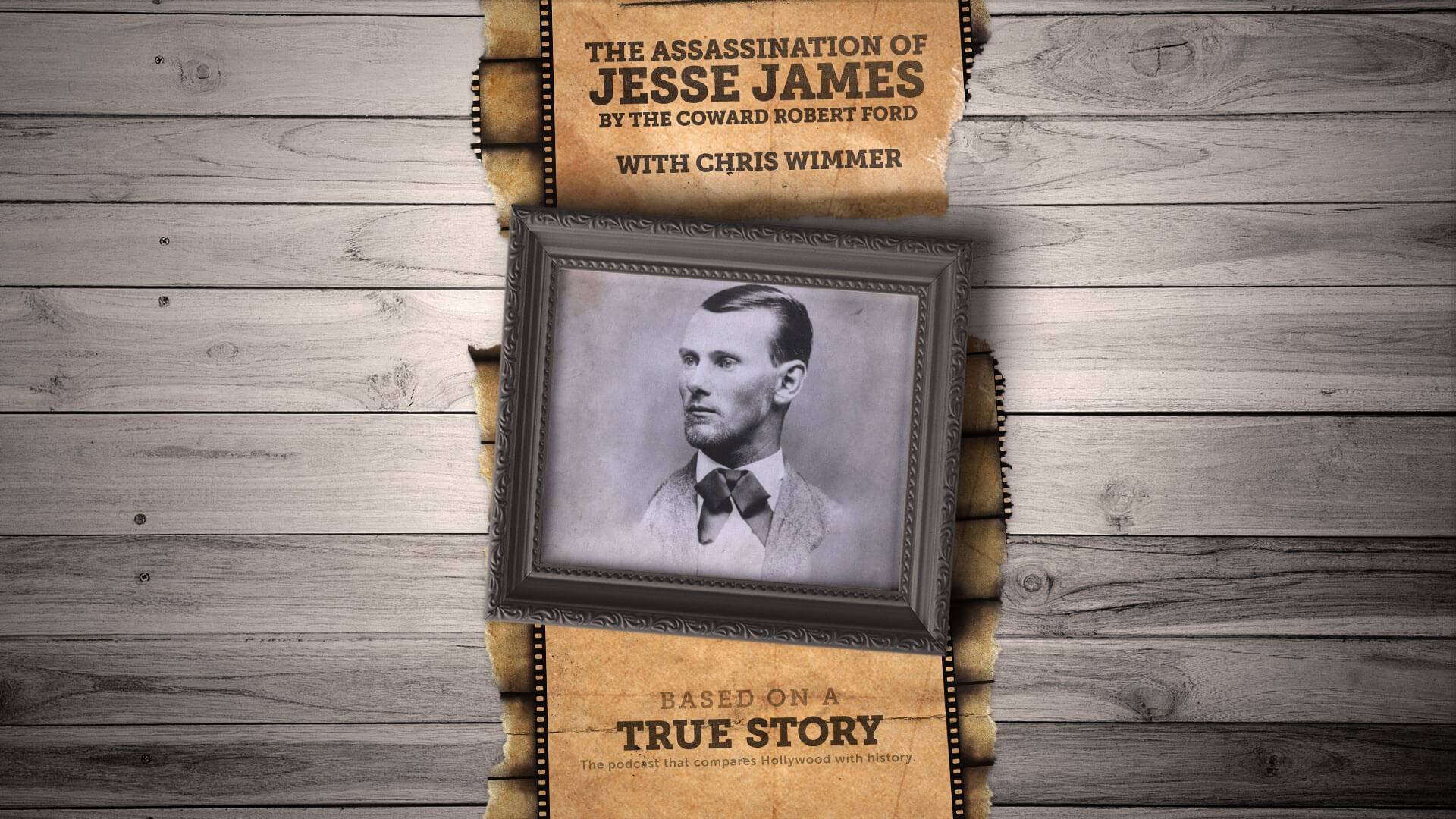In this episode, we’ll learn about historical events that happened this week in history as they were depicted in these movies: Schindler’s List, Valkyrie, and Rome.
Events from This Week in History
Birthdays from This Week in History
Movies Released This Week in History
Did you enjoy this episode? Help support the next one!
Disclaimer: Dan LeFebvre and/or Based on a True Story may earn commissions from qualifying purchases through our links on this page.
Transcript
Note: This transcript is automatically generated. There will be mistakes, so please don’t use them for quotes. It is provided for reference use to find things better in the audio.
March 13th, 1943. Krakow, Poland.
There’s a man applying shaving cream to his face.
Then, the camera cuts to another man doing the exact same thing.
For a moment, the scene cuts back and forth between these two men who are obviously in different locations but they’re doing the same thing.
Then, we hear a voiceover. The man speaking says today is history.
We can see it’s one of the men who was shaving who is speaking. He’s dressed now. He’s in a military uniform—a Nazi uniform—and he is speaking to a bunch of other men in Nazi uniforms. They’re all standing around him in a rectangle in between a few buildings.
The man addressing the rest of the soldiers is Amon Göth, who is played by Ralph Fiennes in the film. He repeats himself, saying today is history and you are part of it.
Then he goes on to explain why today is history. He says that 600 years ago, Casimir the Great told the Jews they could come to Krakow. As he continues to talk about how the Jews flourished in Krakow for 600 years, we can see people in Krakow looking out their windows to see a row of tables being set up. A chair behind each table with ink and pen.
Göth ends his speech by saying that by this evening those six centuries are a rumor.
Then, we see a man and a woman riding a horse. This man is the other man who started his day off by shaving. This man is Oskar Schindler, who is played by Liam Neeson.
Trucks filled with Nazis pour into the streets. Göth gives the orders for where to start and how the soldiers will proceed.
From a nearby hilltop, Schindler watches as Nazi soldiers in Krakow rip people from their homes. Many are shot. The rest would be taken to a concentration camp.
The true story behind this week’s event depicted in the movie Schindler’s List
This depiction comes from 1993’s Schindler’s List. The event it’s depicting is unfortunately a true event that happened this week in history: The liquidation of Krakow by the Nazis that took place on March 13th and 14th in 1943.
In the movie, Ralph Fiennes’ version of Amon Göth mentions Casimir and a 600-year history of Jews in Krakow, and the basic gist of that is true. That would be in the 1300s and King Casimir the Great was the last Polish king from his dynasty as he reigned from 1335 to 1370.
But that’s a story for another day.
During the Nazis liquidation of the Krakow ghetto, the SS murdered 2,000 Jews in the ghetto. Another 2,000 were deemed capable of work and sent to nearby Plaszow concentration camp. That’s the one we see being run by Göth in the movie—and it is true that he was the commandant of that concentration camp. The remaining 3,000 or so Jews were sent to Auschwitz-Birkenau where about 549 of them, 499 men and 50 women were forced into labor and the rest were murdered in gas chambers.
In the movie, we see Liam Neeson’s version of Oskar Schindler watching the liquidation of the Krakow ghetto and it plays a big part in his decision to go on to risk his own life and save over a 1,000 Jews.
At least, that’s how the movie portrays it.
It is true that Oskar Schindler had a factory in Krakow, but it’s not true the liquidation of the ghetto was a major turning point that sparked his movement to save Jews like the movie seems to imply. It was a slower process than that. He convinced Göth to let him set up a special camp of sorts just for the Jews who worked for him.
If you want to watch the event that happened this week in history, it is shown in the 1993 movie Schindler’s List and while the liquidation of the ghetto begins at about 55 minutes, I’d really recommend watching the entire movie to get much better context around it all.
And then, you can take a deep dive into the true story by listening to episode #58 of Based on a True Story.
March 13th, 1943. Smolensk, Russia.
Our next movie takes place on the very same day as the last movie: March 13th, 1943.
This time we’re not in Poland, though, but there’s text on the screen in the movie to tell us we’re at The German Eastern Front in Smolensk, Russia.
Two passenger planes are being escorted by two fighters. We can see from the swastika on their tails that they’re Nazi planes. The ground below is covered in a deep green forest. In the middle of the forest is a clearing with a runway.
The fighters pass by the runway as they allow the passenger planes to land first. As they taxi on the runway, a row of Nazi soldiers are standing at attention. A bunch of soldiers pile out of the plane first, followed by more important senior officials.
Then, David Bamber’s version of Adolf Hitler steps off the plane.
We see Hitler meeting with some of his officers. One of them is Kenneth Branagh’s version of General Henning von Tresckow.
In the next scene, Tresckow and another soldier are putting something into a bottle of liquor. Tresckow mentions something about a fuse—this must be a bomb. He places the fuse carefully, then looks up as the sound of the plane’s engines starting back up can be heard. Hitler is leaving.
Tresckow rushes a box to Tom Hollander’s version of Colonel Brandt just before he gets on the plane with Hitler. It’s a wooden box and Tresckow shows what’s inside, a bottle of liquor. Brandt takes it and hops on the plane.
That night, Tresckow is sitting anxiously by the phone when it rings. The plane has landed.
The true story behind this week’s event depicted in the movie Valkyrie
This depiction comes from 2008’s Valkyrie. The event depicted in the segment I described is the attempted assassination of Adolf Hitler that took place this week in history on March 13th, 1943.
While the general idea of what we see in the movie is pretty accurate, there is more to the story.
This plot to kill Hitler was codenamed Operation Flash, or sometimes it’s translated as Operation Spark.
The name, which was given by the General Tresckow, was because he and other anti-Nazi German officers didn’t believe it’d be possible to overthrow the rest of the Nazis while Hitler was alive. So, they’d assassinate Hitler and take Germany back from the Nazis.
Hitler was visiting field headquarters in Ukraine for about a month in early 1943 and on the way back to Germany, he was going to stop in Smolensk where the Army Group Centre’s headquarters were located. General Tresckow was the Chief Operations Officer of the AGC, and a few others involved in the conspiracy were in the AGC as well, so it was a perfect opportunity for them to take action.
There were a few different options. They could just shoot Hitler while he was having dinner, but they didn’t like the idea of shooting an unarmed man. They could start a battle with Hitler’s SS guard, but they didn’t like the idea of Germans fighting each other.
So, they decided to go with the option to put a bomb on the plane that would go off after a period of time. The idea being the plane would take off and blow up in the air.
And just like we see in the movie, the bomb was put into a box that was supposed to have bottles of liquor that Tresckow gave to Colonel Brandt—he really was an officer on Hitler’s staff. Just like we see in the movie, Tresckow asked Brandt to deliver the liquor to General Stieff.
He wasn’t a part of the plot, but Tresckow knew Stieff was anti-Nazi as well.
While Tresckow couldn’t have known it at the time, it seems the detonator got too cold in the atmosphere as the box was in the cargo hold that wasn’t heated. So, the bomb never went off. What we don’t see in the movie is that after they realized the bomb didn’t go off, one of the men working with Tresckow took a plane to retrieve the box from Brandt before the bomb could be discovered.
If you want to watch the event that happened this week in history, the movie I’m talking about of course is the 2008 movie Valkyrie, and the Smolensk-Rastenburg assassination attempt takes place right near the beginning at about six minutes and 40 seconds into the movie.
After you watch that movie, you can learn more about the true story by listening to episode #62 of Based on a True Story.
March 15th, 44 BC. Rome.
Ciarán Hinds’ character, Gaius Julius Caesar, walks into a massive building followed by a bunch of other men. James Purefoy’s character, Mark Antony, tries to follow but gets distracted by someone else.
Caesar enters a great room filled with lots of men. They’re all wearing white robes with red, almost as if it’s the uniform of the Roman Senate. Because that’s where they are, the Senate of Rome.
Caesar acknowledges other Senators as he enters, telling Barca that he hasn’t forgotten—he doesn’t really say what, but it’s not a focus for long because another senator named Cimber approaches Caesar and reminds him that he was going to consider revoking his brother’s exile.
Everyone wants something from Caesar. Basically, politics. Everyone wants something from someone else.
Caesar tells Cimber that he’s still considering it.
Then, Cimber grabs at Caesar’s hand. Caesar pulls his hand away, looking back at Cimber. Cimber grabs at Caesar’s cloak even harder now. Pushing him away, Caesar and Cimber are facing each other for a moment before Cimber says, “What are you waiting for? Now!”
After an awkward pause, senators from all around start mobbing Caesar and stabbing at him. He grabs the first knife, cutting his hand. But there are too many men surrounding him. Before long, Caesar’s white cloak is soaked in blood.
Lying there bleeding to death, the last man to approach Caesar is Tobias Menzies’ character, Marcus Brutus. Caesar looks up at him and sobs just before Brutus delivers the fatal blow to Caesar.
The true story behind this week’s event depicted in the TV series Rome.
That’s a description of an event shown in the HBO miniseries called Rome. That event is the assassination of Julius Caesar, which really did happen this week in history on March 15th, 44 BC.
And it is true that Caesar was stabbed to death by Roman senators like we see in the series. Some sources suggest up to 60 were involved in the assassination that took place on the Ides of March, stabbing him 23 times.
While we associate the term the Ides of March with Caesar’s assassination, the Ides of March wasn’t something that was always linked to Caesar’s assassination. In a nutshell, the Roman calendar worked a lot differently than our calendar does today and Ides simply meant the 15th day of a 31-day month like March. Later, in William Shakespeare’s play called Julius Caesar there’s the line that says “Beware the Ides of March.” Since then, the term the Ides of March has been tied to Julius Caesar’s assassination.
Speaking of Shakespeare, in the HBO miniseries you’ll also notice another difference: Ciarán Hinds’ version of Caesar does not say “Et Tu Brute?” right before Brutus delivers the fatal blow.
We don’t know for sure if Caesar actually said that, but that famous line is something that, again, comes from Shakespeare’s play.
Although, just like Shakespeare didn’t come up with the term Ides of March, he also didn’t come up with the idea that Caesar said something before he died. Ancient historian Suetonius wrote about the 12 Caesars in the year 119 AD, so long before Shakespeare, but also over 150 years after Julius Caesar’s assassination.
In his writing, Suetonius wrote that when Brutus stabbed him, Caesar said, “You too, my child?”
Of course, that’s the English translation. And because of translations and various writings and reinterpretations and tellings of the story—that’s how we get a variety of different things that Caesar may have said prior to his death.
Or, maybe, he didn’t say anything at all.
If you want to watch the event that happened this week in history, check out the HBO miniseries called Rome, Caesar’s assassination happened in the last episode of the first season. That’s season one, episode 12, at about 36 minutes and 37 seconds.
Share this:
- Click to share on Twitter (Opens in new window)
- Click to share on Facebook (Opens in new window)
- Click to share on Reddit (Opens in new window)
- Click to share on Pocket (Opens in new window)
- Click to share on LinkedIn (Opens in new window)
- Click to share on WhatsApp (Opens in new window)
- Click to share on Telegram (Opens in new window)
- Click to email a link to a friend (Opens in new window)
- Click to print (Opens in new window)



